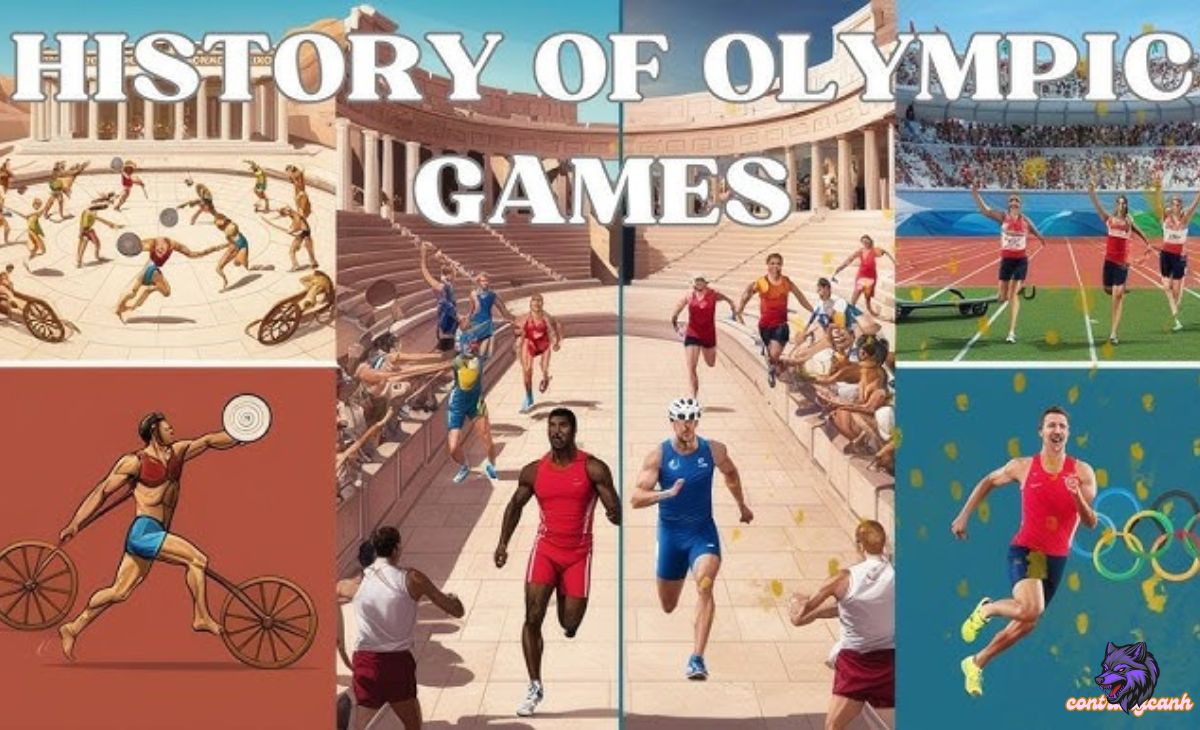El Clasico
Published on November 13, 2024

The first Olympic Games hold a special place in the history of sports, marking the beginning of a tradition that continues to captivate audiences worldwide. These ancient games, held in Olympia, Greece, were not just athletic competitions; they were a celebration of culture, religion, and community. In this article, we will explore the origins, events, and significance of the first Olympic Games, providing a comprehensive overview that appeals to both sports enthusiasts and history buffs alike. For more insights into sports and culture, visit Brand Website: contrungcanh.com.
The Olympic Games trace their roots back to 776 BC, making them one of the oldest sporting events in history. They were held in honor of Zeus, the king of the Greek gods, at a sanctuary in Olympia. The games were part of a religious festival that included sacrifices and ceremonies, emphasizing the deep connection between athletics and spirituality in ancient Greek culture.
The first Olympic Games featured a limited number of events, primarily focused on running. The initial competition was the stade, a sprint of approximately 192 meters, which was the only event for the first 13 Olympiads. Over time, additional events were introduced, expanding the scope of the games.
Key Events Introduced Over Time
These events not only tested physical prowess but also reflected the values of discipline, honor, and competition that were central to Greek society.
The Olympic Games were a significant cultural event in ancient Greece, leaving a lasting influence on art, literature, and politics. Victors were celebrated as heroes, and their achievements were not only recognized but also immortalized in various forms of artistic expression. The games served as a platform for political expression, with city-states often using the occasion to announce alliances or resolve disputes, thereby intertwining athletic competition with civic pride and identity.
Artistic and Literary Celebrations
The games inspired a wealth of artistic and literary works. Poets like Pindar composed odes to Olympic champions, celebrating their victories and the glory of the games. These odes were not just tributes; they encapsulated the values of strength, honor, and perseverance that the Olympics represented.
In addition to poetry, statues of winners were erected in their hometowns as a means of honoring their achievements. These statues, often crafted in marble or bronze, served as symbols of pride and inspiration for future generations. The artistic representations of athletes highlighted not only their physical prowess but also the cultural values of excellence and heroism esteemed in Greek society.
The cultural ramifications of the Olympic Games extended beyond the realm of art and literature, influencing political dynamics and fostering a sense of unity among the often-fractured Greek city-states.
The ancient Olympic Games continued for nearly 12 centuries, but their decline began with the rise of the Roman Empire. By the 4th century AD, the games faced increasing challenges, including the growing influence of Christianity, which viewed the pagan rituals associated with the Olympics as incompatible with its teachings. The last recorded Olympic Games were held in 393 AD, when Emperor Theodosius I banned them as part of his efforts to suppress pagan practices.
The modern Olympic Games were revived in the late 19th century, inspired by the ancient tradition. The first modern Olympics took place in Athens in 1896, featuring many of the same events as the ancient games. This revival has led to the establishment of the Olympics as a global sporting event, celebrated every four years and featuring athletes from around the world.
Key Features of the Modern Olympics
The first events included the stade race, which was the only event for the first 13 Olympiads. Other events like the diaulos and wrestling were introduced in subsequent years.
The ancient Olympic Games were held every four years, a period known as an Olympiad. This cycle was used by the Greeks as a unit of time measurement.
Initially, only freeborn Greek men were allowed to compete. However, as the games evolved, athletes from various Greek city-states were permitted to participate.
The Olympic truce allowed athletes and spectators to travel safely to the games, promoting peace and cooperation among the often-warring Greek city-states.
The ancient Olympics laid the groundwork for modern sporting events, emphasizing competition, athleticism, and the celebration of human achievement.
The first Olympic Games were a remarkable blend of sport, culture, and religion, reflecting the values of ancient Greek society. From their humble beginnings in 776 BC to their evolution into a global phenomenon, the Olympics continue to inspire and unite people around the world. Understanding the history and significance of these games enriches our appreciation for the athletic competitions we enjoy today.